Angela Merkel visited the Auschwitz concentration camp. It was her first visit to the site as the German Chancellor and the first visit by any chancellor in 25 years.
As she stood before survivors of the camp, she spoke of the deep shame she felt for the atrocities committed there by Germans.
During the visit, Merkel announced a 60 million euro ($67 million) donation to fund the conservation of the memorial.
This comes at a time when anti-Semitism is on the rise in Germany and is meant to underscore the government’s dedication to combating hate crimes.
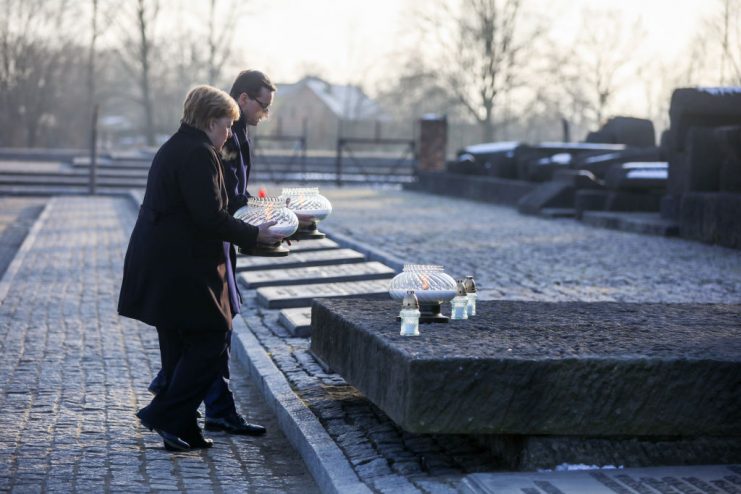
Merkel pointed out that the camp was run by Germans and stated that it is important to “clearly identify the perpetrators.” She said that Germany owes this to the victims and that they owe it to themselves.
She called on Germany to never forget or to minimize the Holocaust while urging people to stand against hate speech and anti-Semitism.
While at the memorial, Merkel held a moment of silence at the Black Wall where thousands of prisoners were lined up and shot.
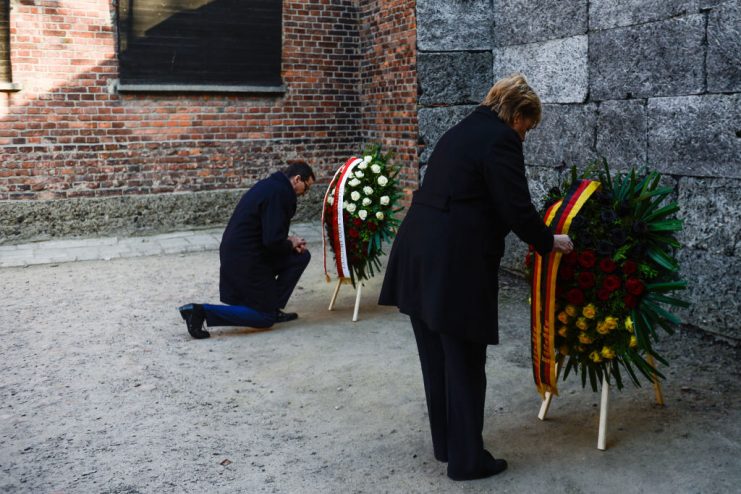
As part of her visit, Merkel traveled a mile down the road to the Birkenau camp and placed a wreath of flowers there.
Merkel was joined by Polish Prime Minister Mateusz Morawiecki and President Andrzej Duda.
Bogdan Stanislaw, who survived the camp, spoke about his memories of the camp. He said that when he would ask other prisoners about when they would be released, they would laugh and point at the chimneys of the crematorium. “This is the way to get out,” they told him. “There is no other way.”
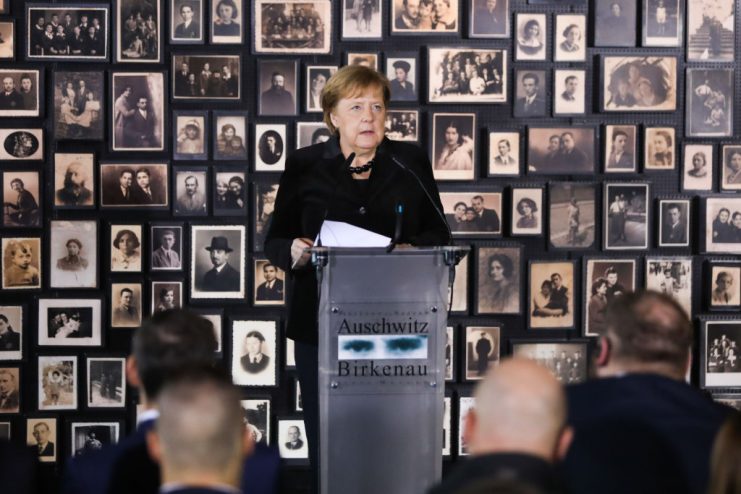
Merkel is the third German Chancellor to visit the memorial in Poland. Helmut Schmidt visited in 1977 and Helmut Kohl visited in 1989 and again in 1995.
While this is Merkel’s first visit to Auschwitz, she has visited other Holocaust memorials during her time in office. She has also made several visits to the Yad Vashem World Holocaust Remembrance Center in Israel.
Merkel has received Israel’s highest civilian award for her continuing fight against anti-Semitism through her education initiatives.
She has also visited the Buchenwald camp and the Dachau camp. She was criticized for the timing of her Dachau visit as it appeared to critics to be an election stunt.
Hate crimes, particularly against Jews, have been on the rise in Germany. In October, a gunman killed two people in an attack on a synagogue on Yom Kippur, the holiest day of the year for Jews.
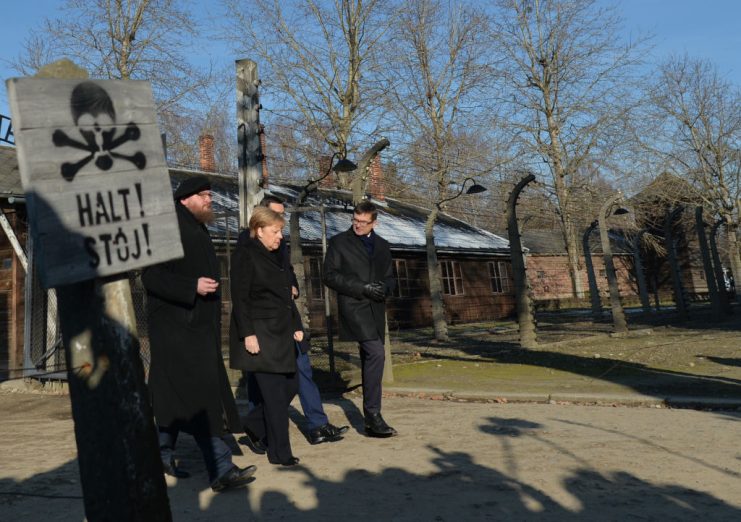
According to the Auschwitz Memorial, politicians are never invited to attend the memorial. They do announce to countries that donate to the memorial when events take place and allow politicians to attend, if they wish to participate.
In this case, Merkel was invited to attend by the Auschwitz-Birkenau Foundation. The foundation runs the endowment fund for conserving the memorial.
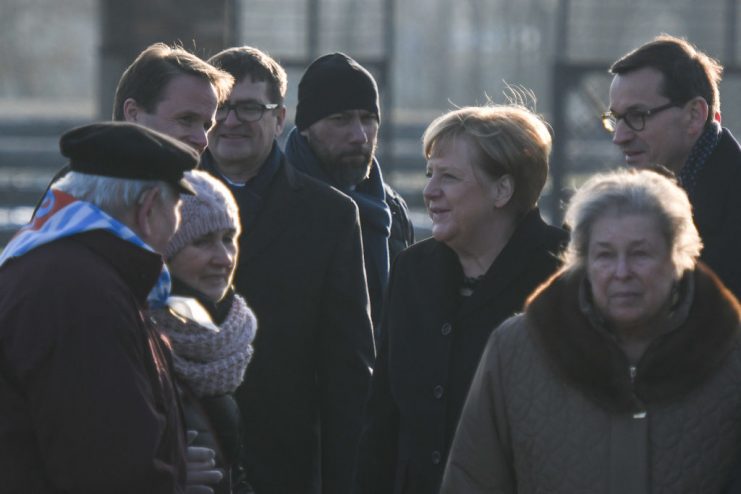
The foundation is celebrating their 10th anniversary this year. The German government is the fund’s biggest donor.
Merkel’s support for the foundation and the memorial come at a time when the far right AfD party has made gains in recent elections.
Another Article From Us: Man in the High Castle: Nazi Symbols from Amazon Show Destroyed
Members of the AfD party have questioned Germany’s emphasis on educating about the Holocaust and have tried to take down memorials dedicated to the victims.
